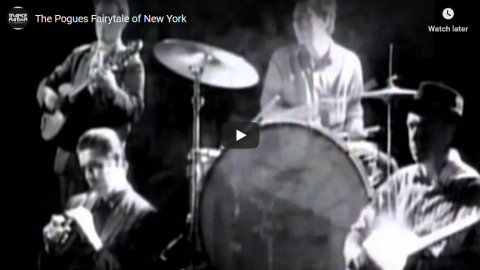TimeGhost History
Published 24 Dec 2019The first day of TimeGhost of Christmas is about a legendary Christmas Party bearing the equally legendary name of “the Eggnog Riots”, which took place on Christmas Eve in 1826 at the Military Academy at West Point, New York.
Join us on Patreon: https://www.patreon.com/TimeGhostHistory
Hosted by: Indy Neidell
Written by: Joram Appel and Spartacus Olsson
Directed by: Spartacus Olsson and Astrid Deinhard
Executive Producers: Bodo Rittenauer, Astrid Deinhard, Indy Neidell, Spartacus Olsson
Creative Producer: Joram Appel
Post-Production Director: Wieke Kapteijns
Research by: Joram Appel
Edited by: Mikołaj Cackowski
Sound design: Marek KamińskiColorizations by:
Norman Stewart – https://oldtimesincolor.blogspot.com/
Dememorabilia – https://www.instagram.com/dememorabilia/Sources:
NYPL Digital Collections
From the Noun Project:
Wine by Ayub Irawan
Drunk by Ates Evren Aydinel
Whisky by Made by Made
Rum by Andreja Kirma
clock by Maurício BritoSoundtracks from Epidemic Sound:
Howard Harper-Barnes – “A Sleigh Ride Into Town”
Etienne Roussell – “A Winter’s Night”
Mike Franklyn – “Christmas Bliss”A TimeGhost chronological documentary produced by OnLion Entertainment GmbH.
December 25, 2019
The Wildest Christmas Party Ever? – December 24th – TimeGhost of Christmas Past – DAY 1
Repost – The market failure of Christmas
Not to encourage miserliness and general miserability at Christmastime, but here’s a realistic take on the deadweight loss of Christmas gift-giving:
In strict economic terms, the most efficient gift is cold, hard cash, but exchanging equivalent sums of money lacks festive spirit and so people take their chance on the high street. This is where the market fails. Buyers have sub-optimal information about your wants and less incentive than you to maximise utility. They cannot always be sure that you do not already have the gift they have in mind, nor do they know if someone else is planning to give you the same thing. And since the joy is in the giving, they might be more interested in eliciting a fleeting sense of amusement when the present is opened than in providing lasting satisfaction. This is where Billy Bass comes in.
But note the reason for this inefficient spending. Resources are misallocated because one person has to decide what someone else wants without having the knowledge or incentive to spend as carefully as they would if buying for themselves. The market failure of Christmas is therefore an example of what happens when other people spend money on our behalf. The best person to buy things for you is you. Your friends and family might make a decent stab at it. Distant bureaucrats who have never met us — and who are spending other people’s money — perhaps can’t.
So when you open your presents next week and find yourself with another garish tie or an awful bottle of perfume, consider this: If your loved ones don’t know you well enough to make spending choices for you, what chance does the government have?
Repost – “Fairytale of New York”
Time:
“Fairytale of New York,” The Pogues featuring Kirsty MacColl
This song came into being after Elvis Costello bet The Pogues’ lead singer Shane MacGowan that he couldn’t write a decent Christmas duet. The outcome: a call-and-response between a bickering couple that’s just as sweet as it is salty.
QotD repost: Sir Humphrey’s bureaucratic holiday wishes
Sir Humphrey: I wonder if I might crave your momentary indulgence in order to discharge a by no means disagreeable obligation which has, over the years, become more or less established practice in government service as we approach the terminal period of the year — calendar, of course, not financial — in fact, not to put too fine a point on it, Week Fifty-One — and submit to you, with all appropriate deference, for your consideration at a convenient juncture, a sincere and sanguine expectation — indeed confidence — indeed one might go so far as to say hope — that the aforementioned period may be, at the end of the day, when all relevant factors have been taken into consideration, susceptible to being deemed to be such as to merit a final verdict of having been by no means unsatisfactory in its overall outcome and, in the final analysis, to give grounds for being judged, on mature reflection, to have been conducive to generating a degree of gratification which will be seen in retrospect to have been significantly higher than the general average.
Jim Hacker: Are you trying to say “Happy Christmas,” Humphrey?
Sir Humphrey: Yes, Minister.






